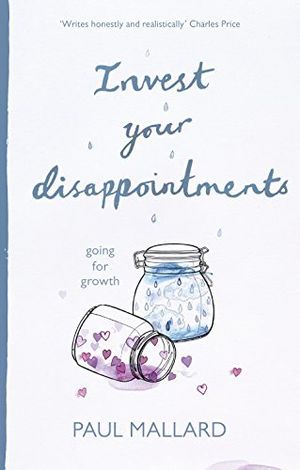Paul Mallard wrote an excellent book called Invest your suffering. Here he brings us another dose of realism in a readable book with much scriptural wisdom. It is written by a man seeking to apply a firm belief in God’s loving sovereignty to his people in a fallen world.
Do we not all know disappointment? Mallard defines it as, ‘The sadness experienced when people or circumstances do not fulfil our expectations’ (p.21). We can be disappointed if we fail to get what we want, or with what we do have when we succeed!
We all live outside the Garden of Eden. For Christians, too, the thorns remain. ‘Disappointment is the breath we breathe outside the Garden’ (p.14). It is not necessarily sinful (as some would teach). Jesus knew disappointment in his sleeping disciples.
God has a purpose in disappointments. We must respond to them as he instructs us in Scripture in order to honour him and benefit spiritually from disappointments.
The author considers six sources of disappointment. The first four are work; relationships (including lack of them); children (or lack of them); and the church. There are many practical suggestions, though some of these could have been written by a secular author. To be sure, some of the suggestions tell us in various ways to look to God, but these would perhaps have been more appropriately placed first.
The last two areas of disappointment are with ourselves and with God. These are the best sections. The second of these gives insightful teaching into Elijah’s experience after Mount Carmel.
The next section steps up a gear. Three great truths are tackled. Firstly, God is good. Secondly, creation is groaning (Romans 8:22-23) and we along with it. Nonetheless, God’s purpose is good in everything (Romans 8:28-30), including disappointments, for those for whom his ultimate purpose is glorification.
Thirdly, Jesus is sufficient. He is glorious and we should have gratitude for our salvation underlying all our feelings. Heaven will be a place with the opposite of disappointment: everything will be better than we can imagine.
Including questions for personal or group reflection, this is a book which brings real spiritual advice to real, struggling people. If you don’t need to read it for yourself, you will know plenty of people who will benefit from it.
John Palmer
Leigh








